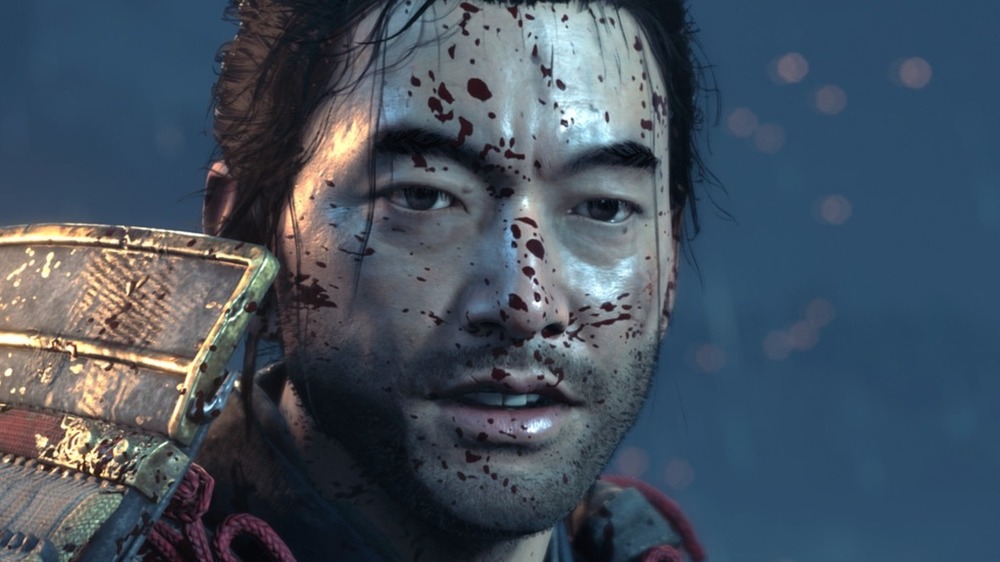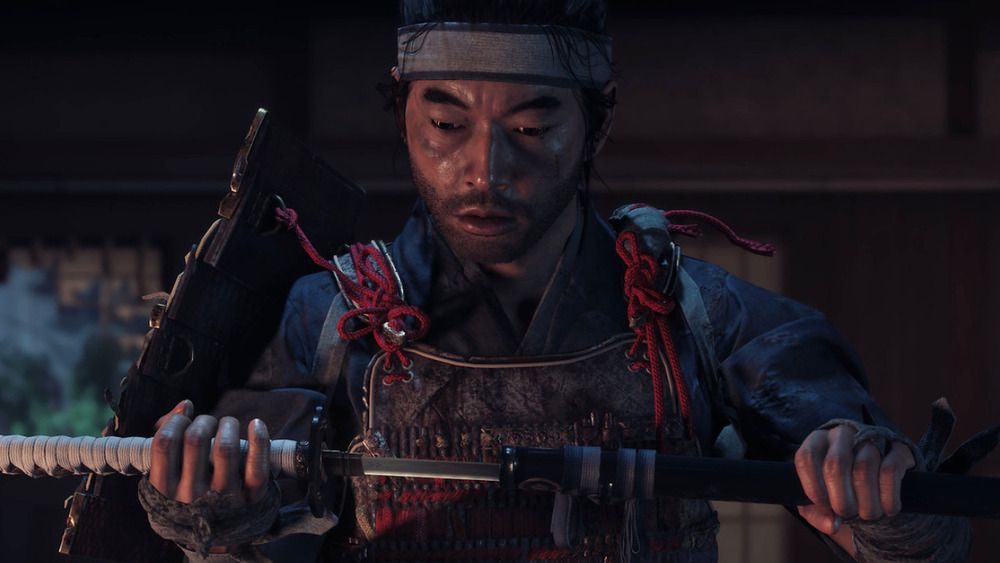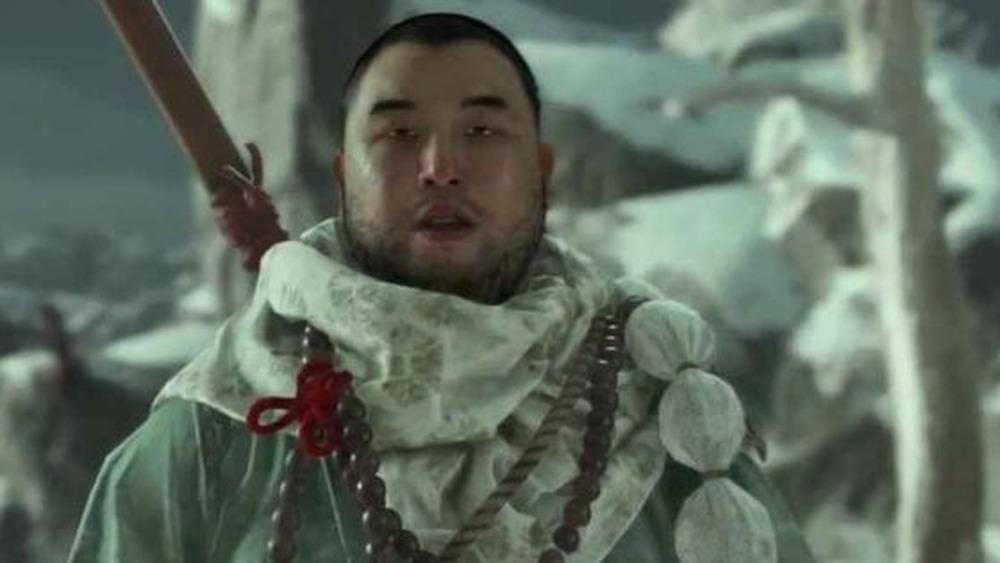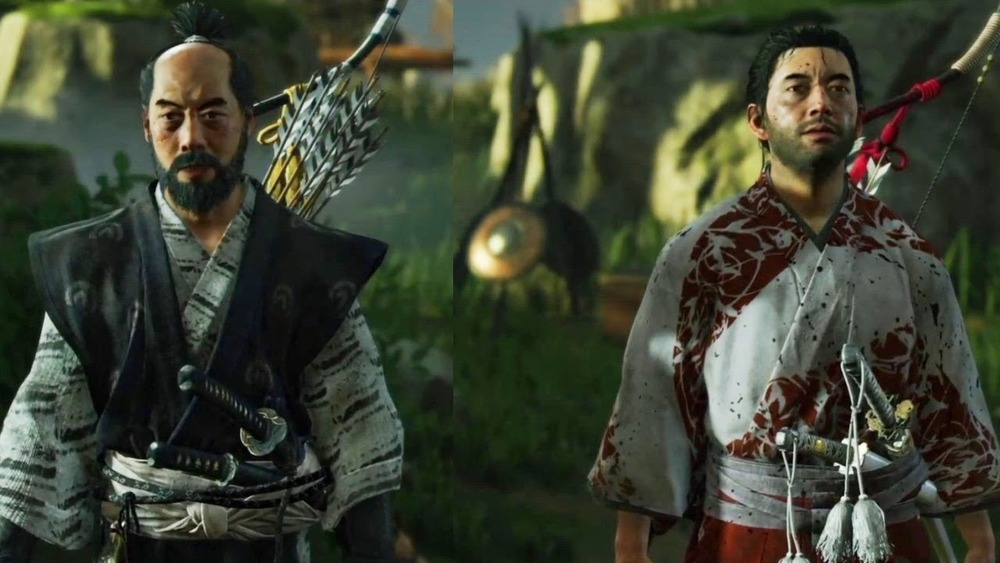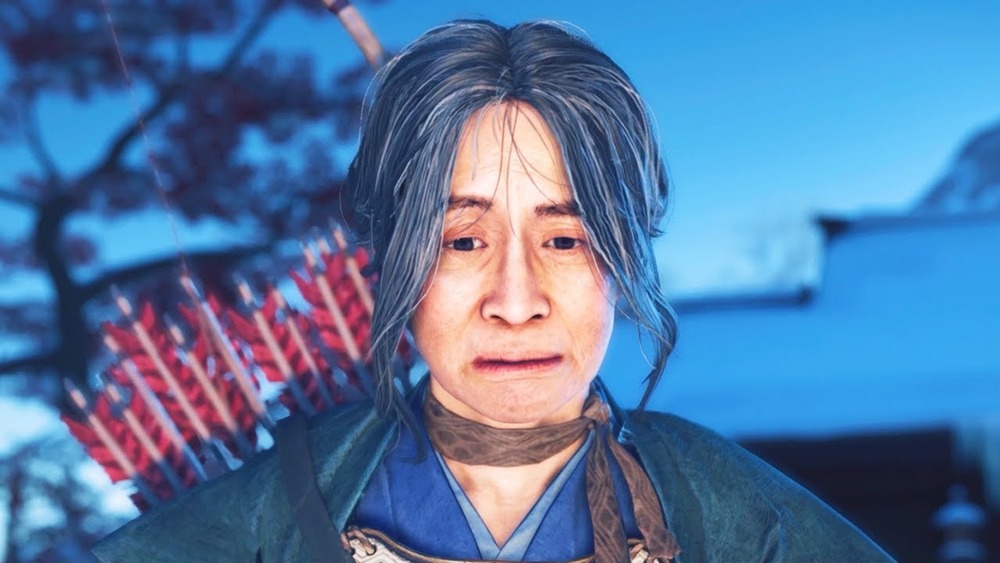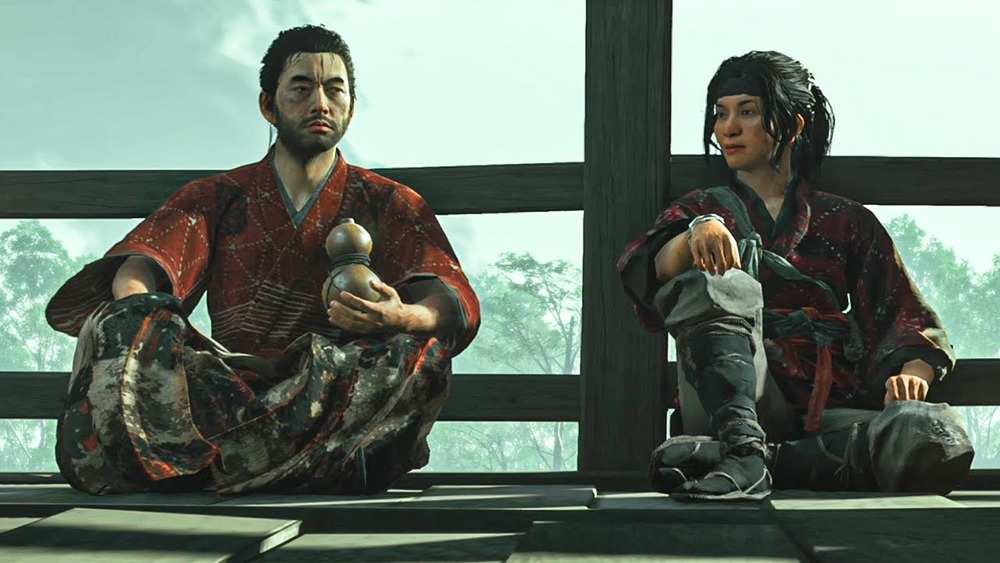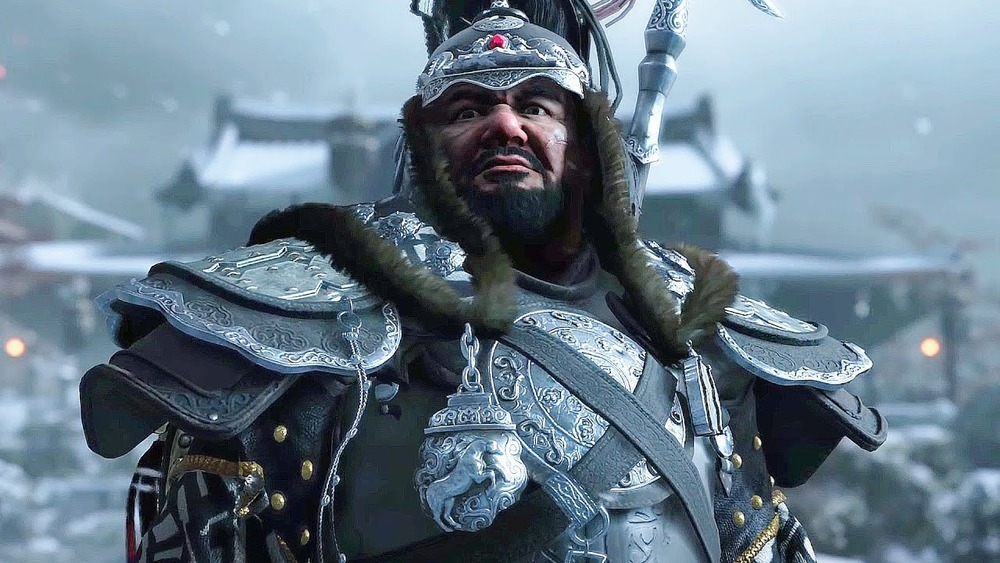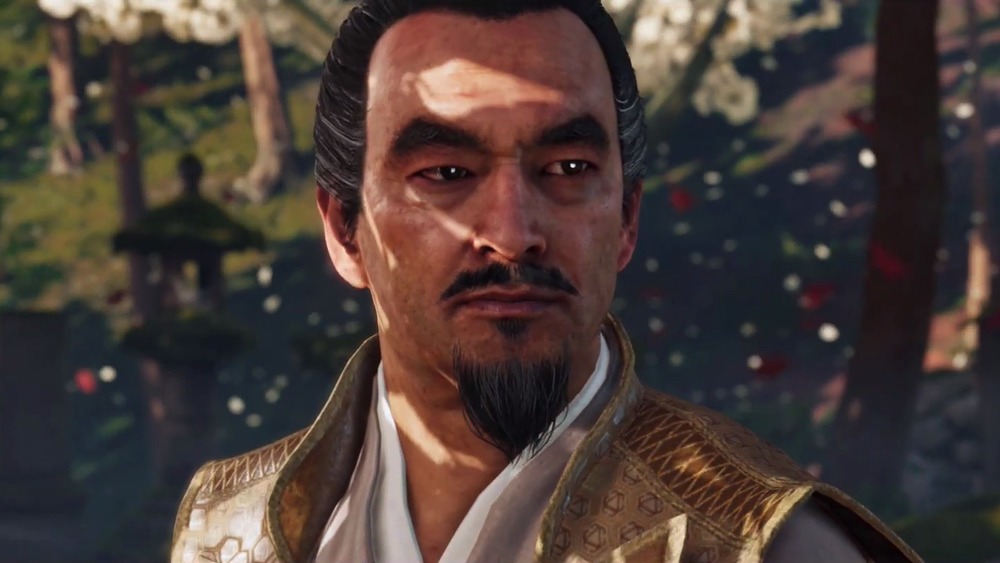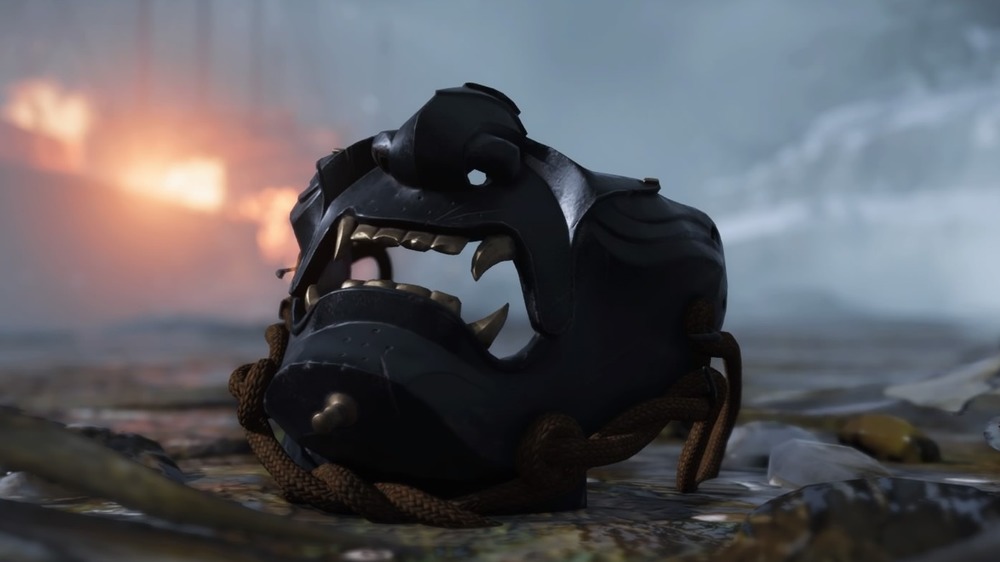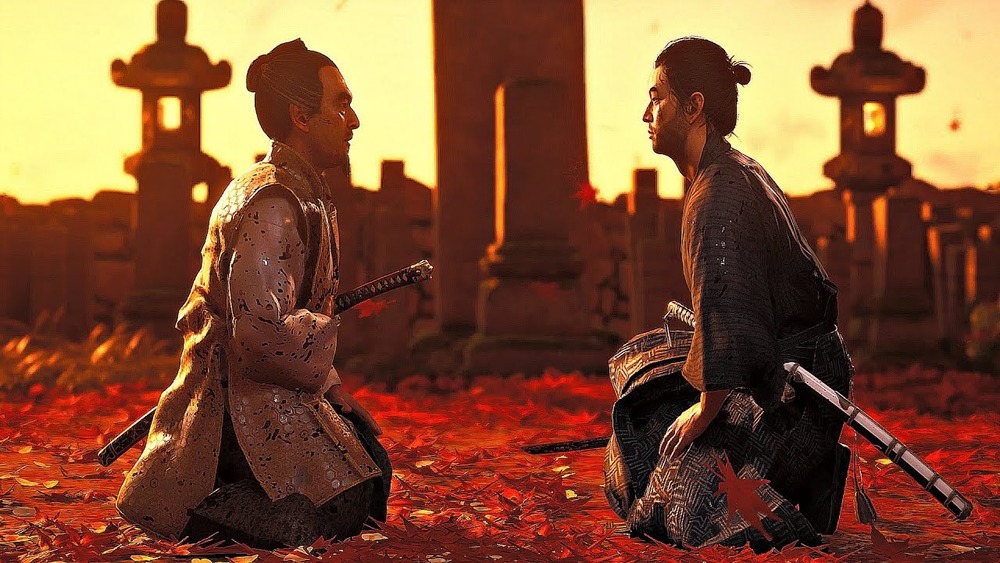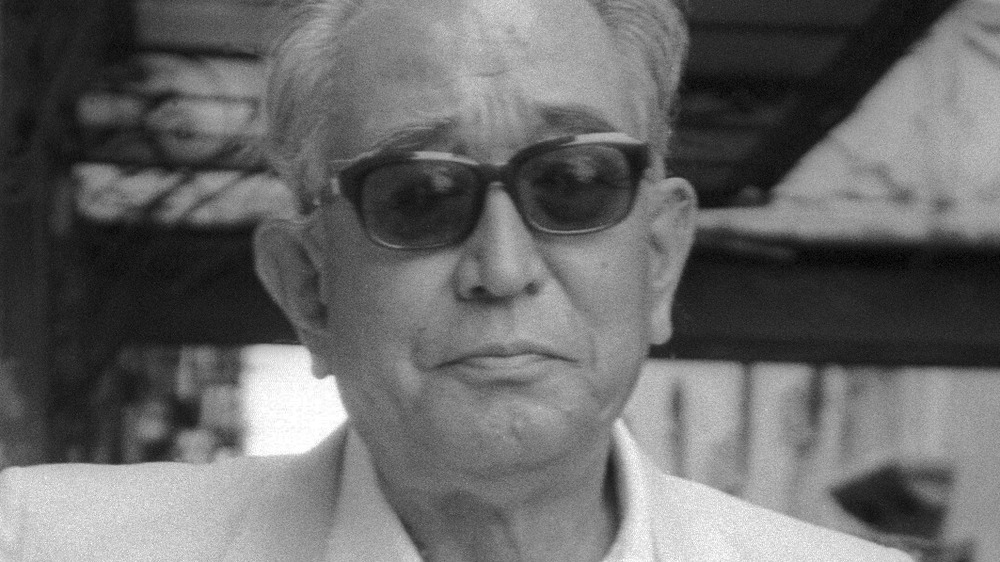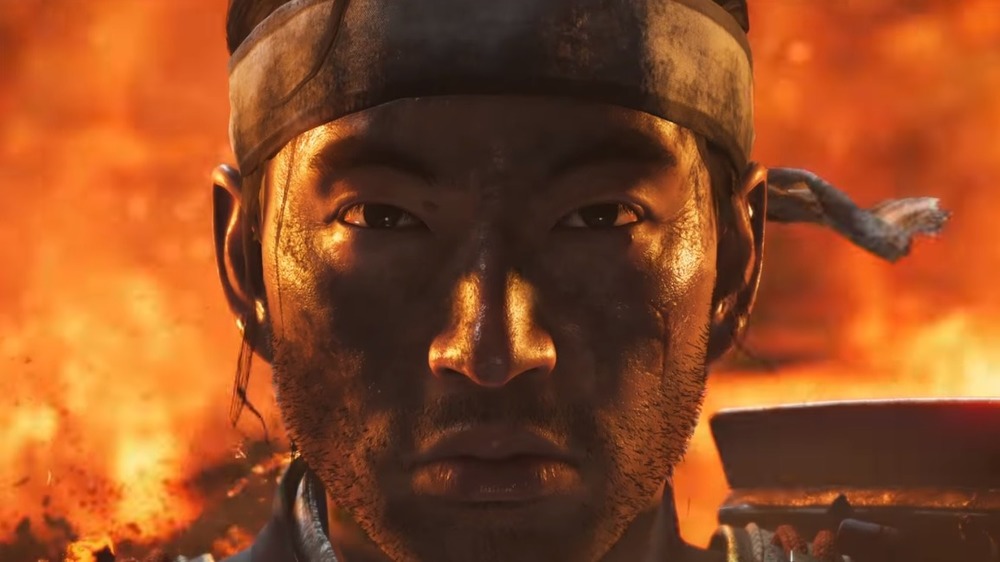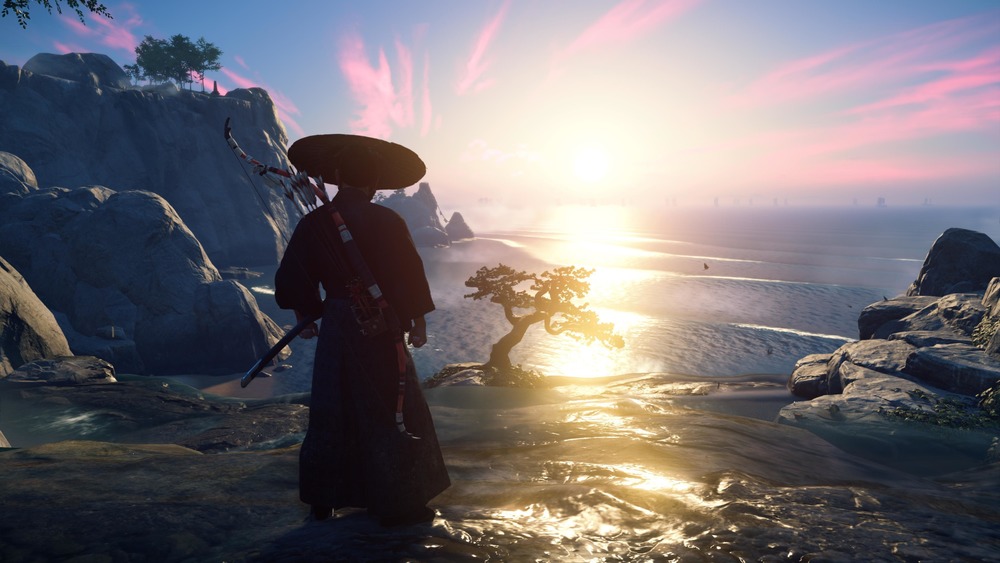Ghost Of Tsushima Ending Explained
The primary moral dilemma in Ghost of Tsushima is Jin Sakai walking a path that toes the line between a samurai's code of honor, and the grim pragmatism of guerilla warfare. Unlike the understated, cryptic narrative FromSoftware tells with Sekiro, or the frenzied action of Ninja Gaiden, Tsushima attempts to make players wrestle with the reality and consequences of their actions through cinematic storytelling.
Tsushima follows a three act structure, with each act concluding with a grand set-piece battle that teases the content of the next. This is fitting for a game that pays homage to filmmaker Akira Kurosawa. Kurosawa was heavily influenced by the three act structure of traditional westerns and despite the lack of cowboys and six-shooters, Tsushima has the same narrative DNA. All of the story's major turning points are driven by Jin's growth as "the Ghost," a near-mythological avatar of Tsushima's resistance.
The Mongol invasion and subsequent war transforms Jin and his allies into versions of themselves they never would have imagined, though the culmination of this transformation is left for players to determine. And while the game is ultimately a romanticized ninja and samurai fantasy, it tells a remarkably mature narrative with a surprising amount of nuance for adult gamers to appreciate.
Jin's Journey
The core of Jin's arc is his gradual transformation from honorable samurai into an infamous assassin and guerilla fighter. In many ways, Jin becomes Tsushima's Kamakura-era Batman. As his legend grows in each act of the game, Jin is known as a revenant, a giant, and a demon, amongst other things. More than a man, he inspires a movement that frustrates the Mongol invasion while also unintentionally destabilizing the traditional power structure of Tsushima's leader — Jin's uncle — Lord Shimura.
The game's greatest narrative triumphs are the moments when the player is forced to reflect on the wholistic merit of Jin's actions. Ultimately, the game comes down on the side of pragmatic, existential survival, as players are forced to adopt the mantle of the ghost, over a samurai's bushido, there are times when Jin's methods have consequences that spiral out of his control, like when Taka is inspired to try and save Jin from certain death, only to get himself in trouble.
Jin's growth is illustrated through the personal stories of his companions. Jin's allies use his decisions as justifications for the measures they take, while others will watch his transformation with concern, offering both guidance and warnings. As noted by Mitchell Saltzman of IGN, "these sidestories reflect an aspect of Jin's own journey," with his actions influencing his companions and visa-versa.
The New Guardian of Cedar Temple
In a game full of heartbreak, Norio's story missions provide some of the most traumatic scenes and developments. His tales arguably do the best job of illustrating the effects of PTSD, survivors' guilt, and other horrors of war, providing context and justification for Jin's extreme methods. The climax of Norio's story occurs when he is reunited with his brother, Enjo, whom he believed was dead, though the meeting is far crueler than he could have imagined.
Most of Jin's allies accomplish their goals, or at least achieve a measure of closure at the end of their tales. Norio, however, succumbs to the rage he has wrestled with throughout the invasion, and goes on an unspeakable rampage through a Mongol occupied base, exacting revenge on the Mongol commander who tortured his brother. This change is startling, as Norio is one of the warmest and most emotionally open characters in Ghost of Tsushima.
Players are left to ponder whether Jin's bloody examples catalyzed the warmhearted monk embracing vengeance, and while Jin reassures Norio that he has fairly earned the title of Cedar Temple's new guardian, one gets the sense that he will always live under the shadow of his brother's defeat and torture.
Teacher and Students
Ishikawa Sensei's mission to hunt down his treacherous student, Tomoe, is part personal grudge and part mission of atonement. Tomoe learned devastatingly effective archery skills from Ishikawa, and passed them on to the Mongols in turn. Tomoe claims she was doing what she did to survive, by any means necessary.
Ishikawa depends on Jin's help in his task, and teaches him new archery techniques in return. But as the two fight together, Ishikawa becomes concerned that his tutelage will accelerate JIns transformation into a guerilla fighter and an assassin who may end up being more monstrous than Tomoe.
Tomoe's relationship with Ishikawa mirrors Jin's relationship with his uncle, as Ishikawa planned on making Tomoe into his heir, albeit by a different degree of extremity. While Jin never actively betrays his people in the way Tomoe did, he does break his code of honor — repeatedly.
Tomoe remains tricky and clever until the end of Ishikawa's story, but her decision to repent (and exploit an opportunity to escape) ultimately persuades Ishikawa to give up his vendetta as well. Despite escaping consequences for her crimes, Tomoe's retreat is presented as one of the game's more hopeful notes.
A Widow's Vengeance
Lady Masako's story begins with her appearing to lose everything, only to suffer more as her quest for revenge deepens. Unlike Ishikawa and Shimura, Masako seems more permissive of Jin's unorthodox methods. In fact, their dynamic serves as an inversion of most of Jin's relationships, with him urging Masako to use restraint when seeking revenge.
Masako is the only character who pursues her goal so single-mindedly that she comes to blows with Jin, earnestly meaning to kill him so she can have her revenge. This provides a rare opportunity for Jin to demonstrate mercy in a game where that is seldom an option.
The nature of Masako's story is a familiar revenge narrative: no matter what a person has lost in life, they stand to lose even more in the pursuit of revenge. But in a way, the extremity of Masako's losses and the zealotry of her revenge provide guard rails for Jin's own desire for vengeance. Even though he shows the Mongols no mercy, her example reminds him to draw a hard line when it comes to protecting potential innocents in absence of evidence.
The Woman Behind the Ghost
Yuna is arguably the single strongest influence on Jin, and the person who is responsible for the creation of the Ghost. Stacey Henley of Gaming Bible argues that Yuna should be the protagonist of Tsushima as she is, in many ways, more nuanced, unconventional, and compelling than Jin Sakai. As a thief and an abuse survivor, her upbringing was far harsher than Jin's, even bearing in mind his own childhood trauma, and it would be interesting to see the war from her perspective.
With Lord Shimura, Ishikawa, and others cautioning Jin against a path that runs contrary to samurai honor, Yuna encourages Jin to fight smart, even if it means fighting dirty. From the start, she is his greatest ally, pulling him from the shores of Komoda Beach in the aftermath of the samurai's disastrous stand against the initial invasion. Even after her brother loses his life attempting to emulate Jin, she stands by him as a constant companion.
There is a spark between the two characters; it grows as the game continues, with Yuna even considering running away with Jin. Ultimately, this relationship is left unresolved, though given the characters' mutual guardedness, the lack of closure feels appropriate. Whatever's between them doesn't need to be detailed by a lengthy confession.
A Villain of Culture
Khotun Khan succeeds as a villain not because he is monstrous — after all, most villains are — but rather because he studies and understands Japanese culture, and frames offers of submission as a pathway to peace. It is Khotun Khan's ability to make surrender seem seductive, or even noble, that makes him a compelling antagonist.
But his true nature is best articulated through inference. Players encounter starved, impaled, and burned peasants throughout Tsushima as bloody reminders of the war's cost. This brutality forces Jin to adopt similar, culturally-aware tactics. Throughout the game, Jin also collects and studies Mongol artifacts.
It must be said, however, that this aspect of the game could stand more development, and feels somewhat half-hearted. The artifacts are optional, have no mechanical bearing on the gameplay, and as such, do little to humanize or enkindle respect for the Mongol enemies. In contrast, Khotun Khan at least maintains the veneer of a healthy respect for Lord Shimura and Jin, despite failing to kill Jin on several occasions.
Tsushima's final act concludes with Jin decapitating the Mongol commander, finally triumphing in a duel after his initial defeat. The Khan's death does not magically fix Tsushima however, and the consequences of Jin's victory fall heavily in the game's epilogue.
A Father's Heartbreak
Lord Shimura is Jin's uncle by blood, but given the early death of Jin's father and mother, Shimura is unquestionably a father figure. The game drives home this point repeatedly with periodic flashbacks of his Jin's youth, including one of Shimura's eventual offer to make Jin his heir and officially adopt him. These sunny plans are scuttled when Jin does the unthinkable to retake Shimura Castle.
Despite his tremendous influence on Jin, the player rarely has the opportunity to fight alongside Shimura, and sees relatively little of him in the third act. It is clear, however, that Shimura is enraged and wounded by Jin's disobedience, based on the mission where Jin must infiltrate Shimura castle and appeal to his uncle for aid in the final battle against the Khan.
It is a tribute to Sucker Punch that Shimura is presented as a paragon of samurai, whose actions simultaneously represent both the good and bad of their ethos. Shimura refuses to retake his castle through a covert attack, but his noble intentions come at the cost of his soldiers' lives. His distaste for subterfuge extends to being dismissive of those doing everything they can to survive. He repeatedly denigrates Yuna's contributions to the war effort, referring to her aid at Castle Kaneda as a distraction.
The Poisonous Turning Point
The ending of the game's second act, where Jin uses wisteria poison to retake Shimura castle, is his point of no return. He deliberately defies his uncle's orders to retake the castle via subterfuge, deciding to poison the Mongols, and the ramifications of that decision set the course for the rest of the game.
Lord Shimura's prohibitions against poison aren't merely sentimental. Even though Jin was hoping to save lives, he ends up inspiring Khotun Khan to use poison as well. Innocent peasants, rather than samurai, die horribly in large numbers, all to send Jin a message that actions have consequences, and he has crossed a line. Even though Jin manages to defeat Khotun Khan before he sails to Japan's mainland, the use of poison added a dangerous weapon to the Mongol arsenal, making them an even greater threat.
The true damage that Jin does to Tsushima, however, is his example of disobedience. By defying the Jito and achieving results through his actions, he demonstrated a philosophy that runs contrary to the traditional rule of law. And as the epilogue shows, his actions have inspired regular people to rally around a legend that has become too large for Jin to manage.
Harsh Mercies
The culmination of the game's theme, standing by a code of honor or choosing pragmatism in the face of brutality, arrives at the game's final sequence where Jin must duel his uncle, Lord Shimura, and choose to grant him an honorable death as he wishes, or to spare his life and live as the object of his hatred.
The former choice is ultimately a kindness to both Jin's guilty conscience and Shimura's dignity, demonstrating that Jin still deeply respects his uncle, and the traditional samurai values he represents. But sparing his life is arguably healthier for Tsushima, as the region will maintain its Jito amidst the aftermath of a war, when the governing class has already been devastated by the initial invasion force. Losing the leadership of samurai is more than a symbolic loss, too. The game repeatedly hints at the dangers of lawlessness with the numerous side quests where Jin must slay bandits and thieves rather than Mongols.
Whether he makes a concession to sentimental tradition, or completely embraces the mantle of the ghost, there is ultimately no "clean" ending where Jin walks away wholly unscathed by his decisions. Everything from the animation to the music is calculated to make the scene as impactful as possible.
Ghost of Tsushima as an Akira Kurosawa Tribute
It is no secret that Ghost of Tsushima was intended as a love letter to the films of Akira Kurosawa, as the game features a mode that bears the famous director's name. But does the game thematically succeed as a tribute to his films?
Kurosawa's films are known for their samurai expressionism, but they also blend tragedy with triumph, and emphasize "the ambiguity of truth," as mentioned by Variety. Even though Kurosawa shot in black and white, the morality of his films often held shades of gray. While the characters lack the same kind of gripping charisma as Kurosawa's works, the theme of subjective truth appears in full force in Tsushima and its ending, as Jin's central struggle is to strike a balance between dutiful, honorable conduct, while waging a war he has almost no hope of winning.
Another way Tsushima is a fitting tribute is the game's sheer beauty. Even writers who found the game's narrative wanting, like Gene Park of The Washington Post, have praised the game's gorgeous animation, as well as the almost poetic quality of fight scenes, likening them to "a beautifully animated ballet of blood and clanging blades." This is a notable homage to Kurosawa, not only for his use of stylized violence, but for his lavishly produced sets.
Missed Opportunities
Ghost of Tsushima does not offer any secret endings for players who complete everything or meet special criteria, and the many dialogue choices Jin is presented with do not have any bearing on the final outcome of the game.
A black and white "honor meter" would have done the game a disservice. It has been argued that reducing complicated moral dilemmas to arithmetic feels like gross oversimplification. But the fact that Jin's choices in combat, and his responses in dialogue have no bearing on his fate, or the fate of those around him, begs the question of why they were included.
One way Sucker Punch may have navigated these challenges would be to have Jin's choices affect the behavior of other characters, allowing Jin to save some allies at the expense of others. Though, one could argue that most players would attempt to follow an "optimal," artificial path through the narrative rather than experiencing it organically.
The characters' motivations are also muddled compared to those in a Kurosawa film. The game's harrowing opening provides ample motivation for Jin's campaign against the Mongols, but he and his allies appear to have no vision for a future following the invasion, and the game provides the player with little levity, right up to the ending.
Looking to the Future
Tsushima's historical setting means that a follow-up to the title featuring the same characters is unlikely, though it is not difficult to imagine a spiritual successor set in another time period or part of Japan. After all, Sucker Punch has recently posted conspicuous job openings for a new project that sounds a lot like a Ghost of Tsushima sequel.
A direct sequel could be intriguing, especially if it presented Jin with enemies aside from Mongols, like the samurai charged with hunting the Ghost, and the bandits that are plaguing Tsushima in the wake of the war. If Jin has truly turned his back on redemption and honor, is he willing to kill his own people if it means protecting Tsushima?
Ultimately though, no follow-up feels strictly necessary, which is refreshing in an era where every new game is intended to lay the groundwork for an epic franchise. Tsushima stands on its own as a solidly built, self-contained story about the horrors of war and the high cost of honor. And those who are sad to see the journey come to an end will be comforted to know there are a wealth of other compelling samurai titles to check out.

